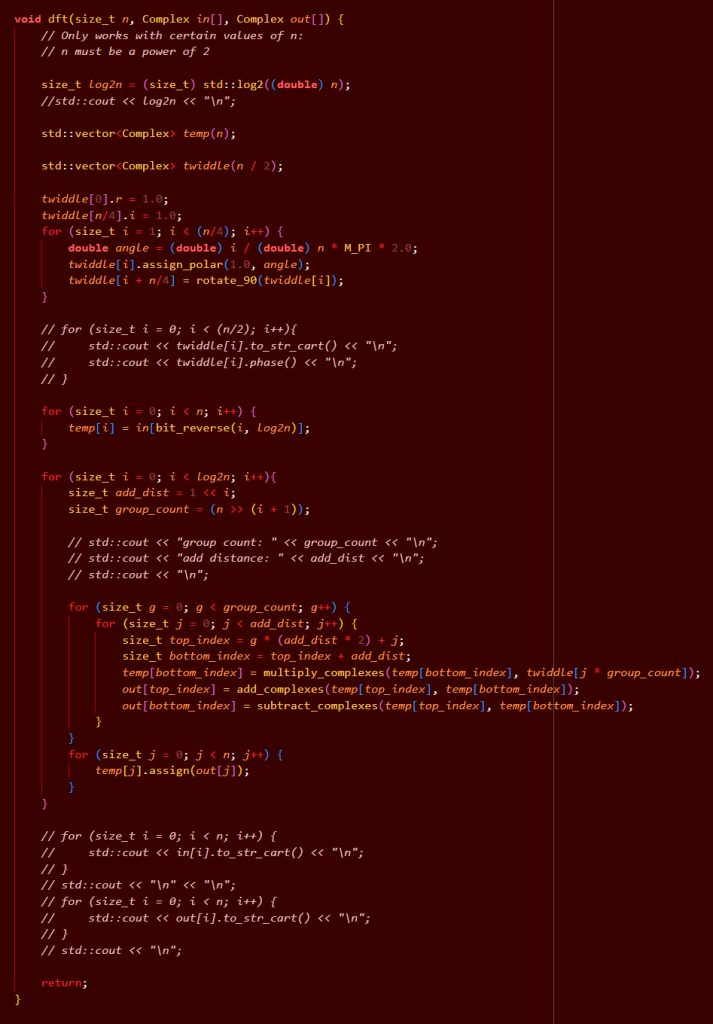This Week’s Accomplishments:
This week, I spent a lot of time working on my C++ code, to be loaded onto our microcontroller. I have completed most, but not all of the real-time pitch-shifting algorithm, with quite a few roadblocks. The first was that I found great difficulty in importing a library for computing the Direct Fourier Transform. In order to minimize the difficulty of interacting with a new interface, I wrote my own DFT code myself, following the Cooley-Tukey radix-2 algorithm. I also wrote code for the Inverse Direct Fourier Transform, which was a simple edit of the DFT code.
Here is my current DFT code, with some print debugging commented out:

I have not yet optimized my code for quickness or implemented garbage collection, which will be necessary for programming in C++. However, I have tested my code and found that for a few test inputs, my output matches that of the Python function “numpy.fft.fft”.
I have found some difficulty in converting my previous Python algorithm not just into C++ but into a real-time operation. This is still in-progress. I will need to test my code’s performance to ascertain what amount of latency is safe.
I have used the micro-USB cable I ordered to connect our microcontroller to my laptop. Next week, I aim to start by learning how to use the Daisy Library to receive input samples and send output samples. I will then implement the “delay” functionality, which is comparatively simple.
We are somewhat behind our original schedule and a little pressed for time. Nevertheless, we are confident in our ability to complete our project in the next week. I will spend a lot of time completing and testing my code within the next few days.
